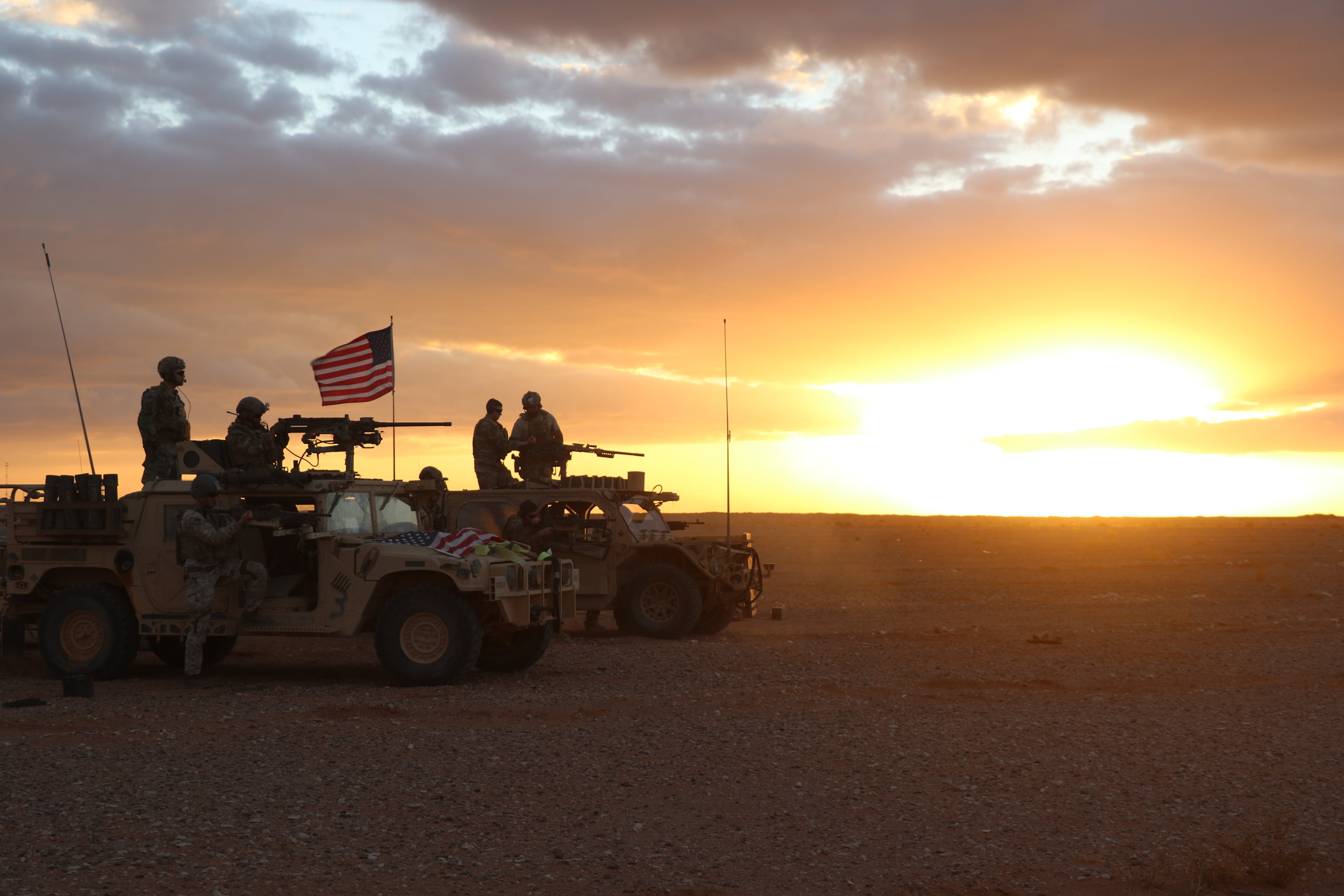As U.S. and coalition forces focus on the few remaining pockets of Islamic State fighters along the Euphrates River Valley in Syria, they’ve seen some of those militants escape to regime-controlled areas to the west.
There are no plans for either U.S. or coalition forces to go after them.
“We are seeing the movement of limited numbers of ISIS militants westward,” said British Army Maj. Gen. Felix Gedney, deputy commander for strategy and support for Operation Inherent Resolve. “They seem to be moving with impunity through regime-held territory showing that the regime is either unwilling or unable to to defeat [ISIS] within their borders.”
Gedney spoke to reporters at the Pentagon via videoconference.
While the coalition “will remain committed to the mission in Syria until ISIS no longer poses a threat,” Gedney said that commitment does not extend into stamping out any ISIS that resurfaces in regime-controlled territory. ISIS fighters have recently attacked southern neighborhoods in the regime-controlled Syrian capital of Damascus.
“We’ve got no intention to operate in areas that are currently held by the regime,” Gedney said.
The coalition decision comes as Russian defense minister Sergey Shoigu announced that Russia is entering a long-term agreement with Syria for a permanent military presence. The agreement calls for Russia to expand a naval base at Tartus and for Russian land and air forces to remain at Hmeymim Air Base.
Russian and Syrian forces have called on the U.S. and coalition forces to leave Syria. Gedney said the coalition’s mission in Syria is not complete and that it is focused on countering any ISIS insurgency campaign in the months to come.
There are an estimated 1,000 ISIS fighters remaining in Iraq and Syria, U.S. defense officials have previously said, with the bulk of those fighters in Syria.
“We will remain committed to defeating ISIS in the areas that are currently controlled by our partnered forces in Syria,” Gedney said. “We would call on the Syrian regime to clear ISIS from those areas that are currently under their control.”
Tara Copp is a Pentagon correspondent for the Associated Press. She was previously Pentagon bureau chief for Sightline Media Group.
